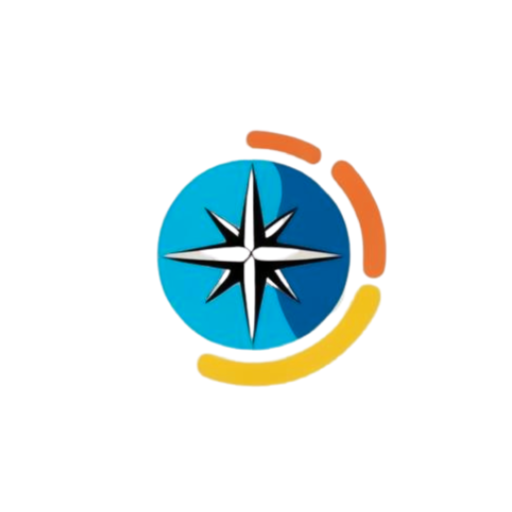Historical Timeline
c. 1000 BCE – Early Ghanaian civilizations and kingdoms, including the Ghana Empire (not the modern country), existed in the region
1471 (Tuesday, June 14) – Portuguese arrival: First Europeans to arrive on the coast, initiating trade relations
1670 (Thursday, April 14) – Dutch establish forts on the coast, becoming involved in the transatlantic slave trade
1821 (Monday, June 5) – British establish the Gold Coast Colony
1957 (Tuesday, March 6) – Independence: Ghana becomes the first African country to gain independence from colonial rule under the leadership of Kwame Nkrumah
1966 (Monday, February 24) – Coup d’état: Kwame Nkrumah is overthrown by a military coup
1981 (Tuesday, December 31) – Coup d’état: Jerry John Rawlings takes control of the country after a military coup
1992 (Wednesday, April 28) – Democratic reforms: Ghana adopts a new constitution, becoming a multiparty democracy
2000 (Saturday, December 7) – First peaceful transfer of power in Ghana’s democratic history, as President Jerry Rawlings peacefully hands over power to John Kufuor
2013 (Saturday, July 13) – Accra floods: Heavy rains cause devastating flooding in Accra, with hundreds of people displaced
2014 (Thursday, July 31) – Ebola outbreak: Ghana remains largely unaffected, but takes major precautionary measures during the West African Ebola outbreak
2015 (Thursday, August 13) – Gas explosion: A gas station explosion in Accra kills over 150 people
2016 (Monday, October 24) – Floods in Accra: Severe flooding from torrential rains causes extensive damage
2018 (Friday, August 17) – Severe drought: Persistent drought conditions affect agriculture and water supply, particularly in northern Ghana
2019 (Wednesday, May 22) – Floods in the northern regions after heavy rains, displacing thousands
2020 (Monday, March 30) – COVID-19 pandemic: Ghana implements lockdowns and social distancing measures to curb the spread of the virus
2022 (Monday, May 2) – Flooding in Accra: Flash floods caused by heavy rains result in widespread damage to infrastructure
2024 (Monday, March 10) – Severe heatwave: Higher-than-usual temperatures affect agriculture and cause water scarcity in the country
General Information
Continent: Africa (West Africa)
Location: Located in West Africa, bordered by Côte d’Ivoire to the west, Burkina Faso to the north, Togo to the east, and the Gulf of Guinea and Atlantic Ocean to the south.
Capital: Accra
Language: English (official), with numerous local languages including Akan, Ewe, Twi, Ga, and others
Currency: Ghanaian cedi (₵)
Population: ~33 million (last updated: April 2025)
Time Zone: Greenwich Mean Time (GMT, UTC+0)
Topography
Borders: Côte d’Ivoire, Burkina Faso, Togo, Gulf of Guinea
Landscape: Coastal plains, forests, savannah in the north, and some mountains in the east
Major Rivers: Volta River, Tano River, Pra River, Bia River
Major Mountains: Mount Afadja (highest point), Akwapim-Togo mountain range
Deserts: None
Lakes: Lake Volta (artificial), Lake Bosomtwe
Volcanoes: None
Highest Point: Mount Afadja – 885 m (2,904 ft)
Lowest Point: Gulf of Guinea – 0 m (sea level)
Climate: Tropical climate with a wet season (May–October) and a dry season (November–April). The southern region has more rainfall, while the north is drier and savannah-like.
Geological Features: Ghana is largely underlain by the West African Craton, with some fault lines but no active tectonic features. The country is also home to gold deposits, making it one of the largest gold producers in Africa.
Demography
Ethnic Groups: Primarily Akan (~47%), Mole-Dagbani (~16%), Ewe (~14%), Ga-Dangme (~7%), and others
Religion: Christianity (~71%), Islam (~17%), Traditional African religions (~6%)
Urban Population: ~57% (last updated: 2023)
Population Notes: Ghana has a diverse culture with over 70 ethnic groups and several local languages spoken. It is one of the most stable and economically developed countries in West Africa.
Culture
Famous For: Cocoa production, gold mining, traditional art, music (highlife), and sports
Cuisine: Jollof rice, Fufu, Banku, Kenkey, Chop bars (local restaurants serving traditional dishes)
Arts: Traditional crafts like bead-making, weaving, pottery, and wood carving; Kwame Nkrumah (first president and influential figure)
Sports: Football (soccer), boxing, athletics, basketball
Music: Highlife, Hiplife, Gospel, traditional drumming
Economy
Economy Type: Lower-middle-income, mixed economy
GDP: Approx. $84.2 billion USD (last updated: 2024)
Major Industries: Agriculture (cocoa, oil, gold, timber), mining, oil and gas, construction, services
Key Exports: Cocoa, gold, oil, timber, bauxite, diamonds
Unemployment Rate: ~4.8% (last updated: 2024)
Economic Regions: Agriculture is a major contributor to the economy, especially in the Ashanti, Western, and Brong-Ahafo regions, while oil extraction has boosted the economy in recent years.
Government
Government Type: Unitary presidential republic
Head of State: President Nana Akufo-Addo (as of April 2025)
Head of Government: President Nana Akufo-Addo (as of April 2025)
Legislature: Unicameral Parliament of Ghana
Constitution: Constitution of Ghana, adopted in 1992
Travel Attractions
Cape Coast Castle: Historic slave trade site
Kakum National Park: Canopy walkway and tropical rainforest
Lake Volta: One of the largest artificial lakes in the world
Wli Waterfalls: Highest waterfall in Ghana, located in the Volta Region
Accra: Kwame Nkrumah Memorial Park, National Museum, Independence Square
Boti Falls: Scenic waterfalls and hiking spot in the Eastern Region
